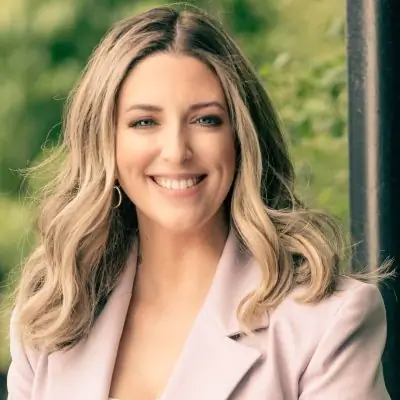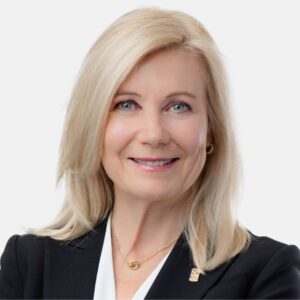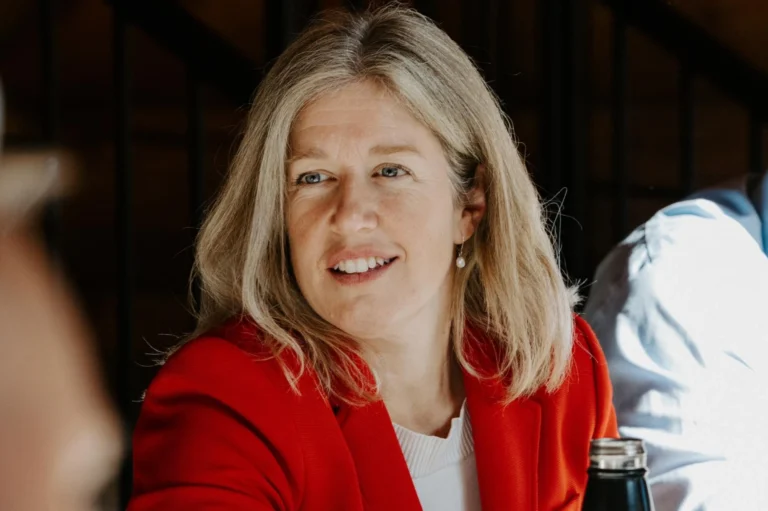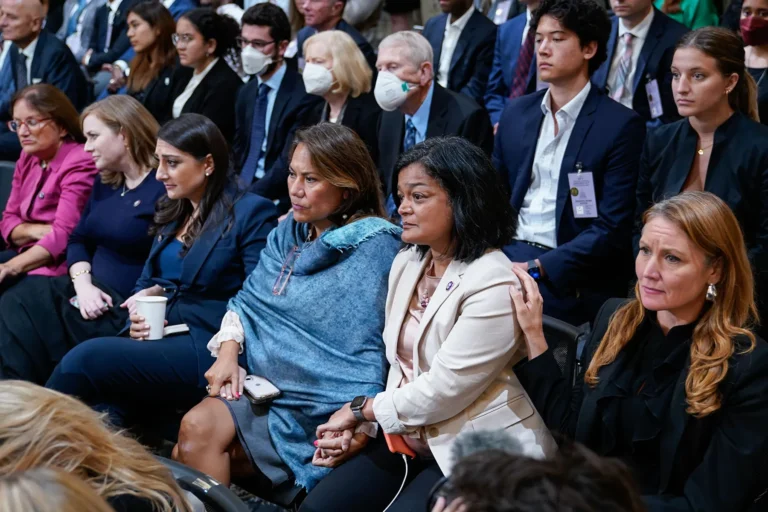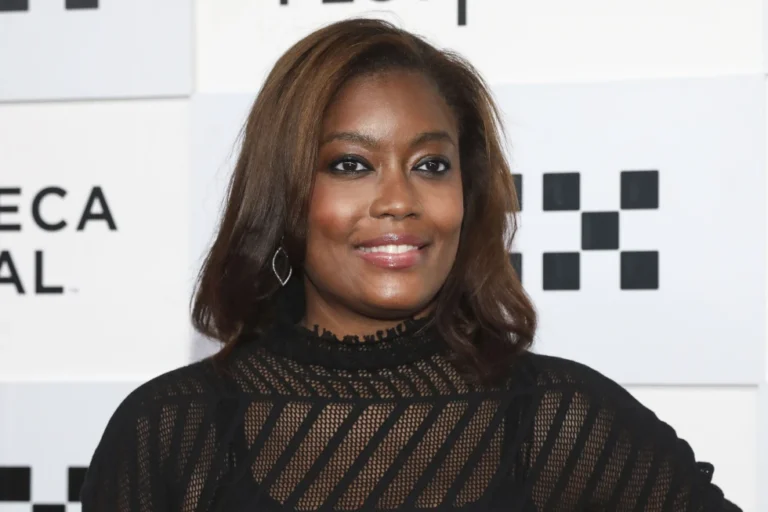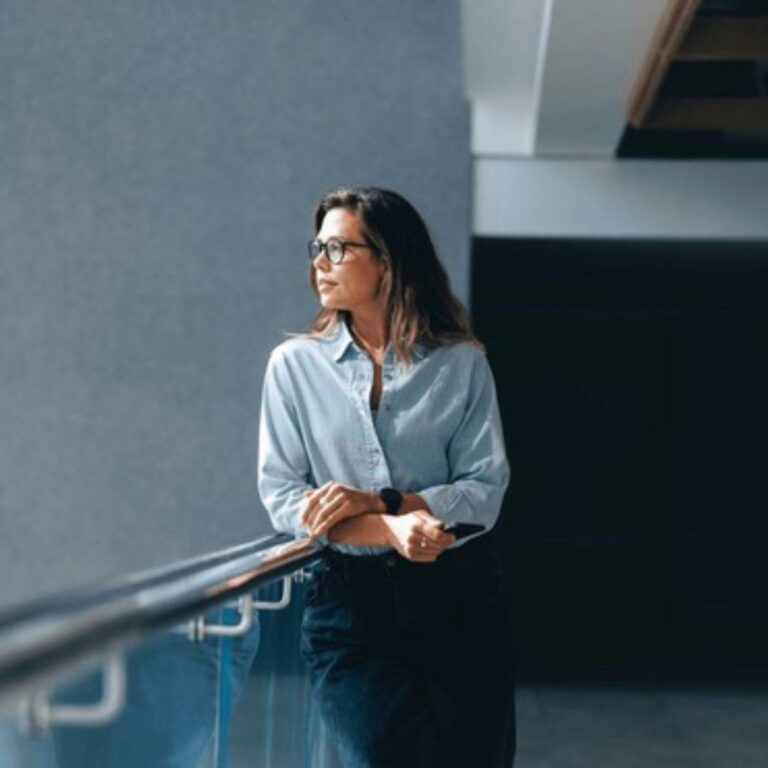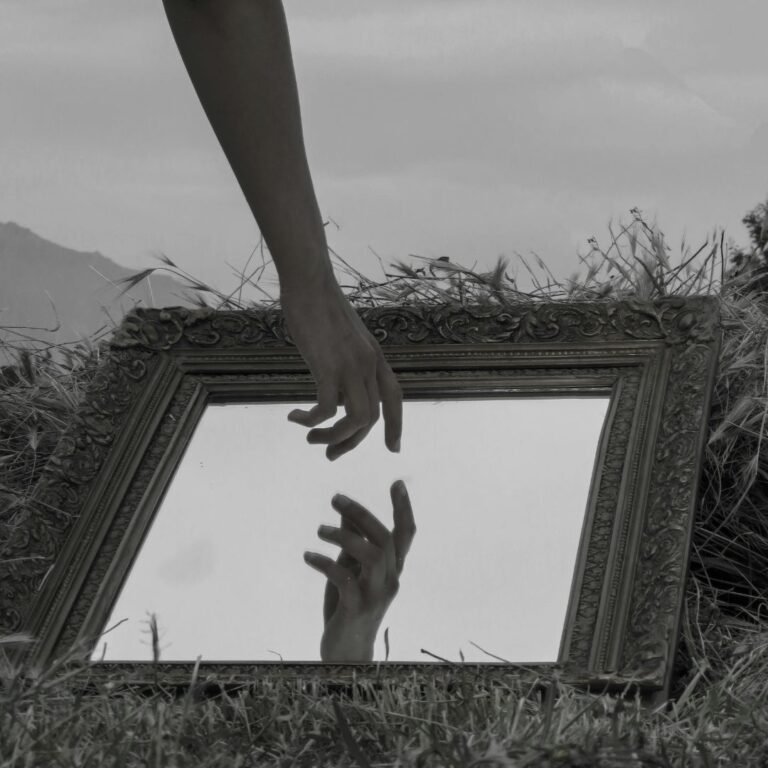Susan Delacourt — Author, political journalist, and columnist for the Toronto Star
Susan Delacourt is one of Canada’s best-known political journalists. The author of four bestselling political books, she is currently the national columnist for the Toronto Star. Her remarkable career has seen her reporting from Parliament Hill for the Globe and Mail, the National Post, the Ottawa Citizen, and iPolitics, covering every major Canadian political event for most of the past four decades and winning awards and accolades along the way.
Catherine and Jen speak with Susan about sexism and female journalists, her favourite political encounter, and the U.S. election results. (Note: This transcript has been edited for length and clarity.)
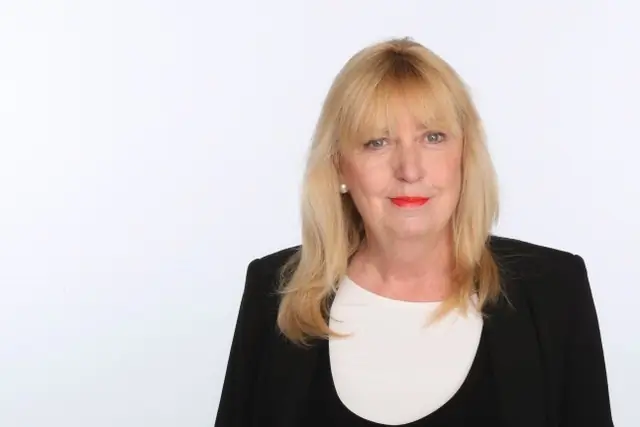
The state of U.S. politics
Catherine Clark: We now know the results of the U.S. election. There is political carnage in the U.S. right now and it has proven to be a nation profoundly divided. How can the U.S. successfully move forward after this?
Susan Delacourt: What really hit me was, a day or two after the vote when all the demonstrations were going on across the country. At some voting places, Trump supporters were yelling to count the vote, and others were yelling don’t count the vote. This is the polarization of the United States at its most ridiculous level, that even the Trump supporters now are polarized between themselves on what they want.
We have been watching the United States with some fear and concern that it could migrate here. My biggest concern has been the polarization, and that’s a concern for the media. Without getting romantic about it, media are supposed to be in the middle but how do you stay in the middle of a polarized, contradictory, fact-free, emotion-laden universe?
What we lack now is a public square, a set of agreed-upon facts. The media is part of that. We’ve got to resist running off to our separate places and just talking to people who agree with us. It’s hard in the media these days when we are rewarded for clicks and how many subscribers or readers we have. It’s the tension between giving people what they want to read and giving people what they need to read. And it’s a huger conversation than just media.
Jennifer Stewart: At times, it’s depressing news. So, I wanted to see how you’re doing.
Susan Delacourt: I have nothing to complain about. Compared to what I am covering, what I’m watching, and the businesses I see in trouble, I have a good and interesting job and I get to work from home with my dog and my husband and I’m healthy. I have not felt it appropriate for me to complain or whine about anything. I feel privileged to report and talk to people at a time like this.
On a personal level, I would be among the group that was pretty okay during the first wave but pretty down during the second wave, just the enduring nature of it. And the fear of what we’re losing and that that may be permanently lost.
Being a woman in political journalism
Catherine Clark: Is it different now as a female journalist, as opposed to when you started on Parliament Hill?
Susan Delacourt: When I first came to Ottawa, I remember each bureau had one woman — except for CBC, which had a few more — and we were all around the same age so we hung out together. Joan Bryden is still one of my closest friends, and back in those days there was Anna Maria Tremonti and Wendy Mesley at CBC. All those women from those years stay in touch. I also worked with a bunch of really great guys at the Globe and Mail when I came here — Graham Fraser, Jeffrey Simpson, and others — who all were incredibly supportive of getting women and getting me to do the big stories. I didn’t feel that I was being marginalized.
But it was interesting to be the only woman here and the things that politicians would say to you. I didn’t have any big #MeToo moments; I had a few really inappropriate things said to me over the years. And, of course, every time you got a good story, they would say it was because you were sleeping with somebody and you just came to accept that attitude as the norm. The rumour mill was far more interesting than my real life.
And the things that male journalists, I won’t name them, were saying about women on the floor of the House of Commons when I first started there — I remember phoning my friend and saying, “I think I’ve just slipped back 20 years here.
The struggle isn’t over yet — there is still a big lad culture around politics that women cannot get into and whether it’s happening on the golf course or guys hanging out after work, there is still a culture that is unfriendly to women journalists.
Jennifer Stewart: You’ve interviewed some remarkable people and been at the forefront of history. What stands out to you as the most incredible moment or interview you’ve had the privilege of being part of?
Susan Delacourt: I followed Lucien Bouchard around during the Quebec election in about 1995 when he was the Bloc Quebecois leader. I was amazed at his ability to work a room, to talk and converse with people. He was a fascinating character. He wore all his emotions on the outside, which was rare for politicians then. After his leg was amputated due to necrotizing fasciitis, flesh-eating disease, he gave me the first English-language interview he did after that. I will never forget that. And, of course, getting to meet Pierre Trudeau, and I travelled with Joe Clark during the Charlottetown Accord. That gave me a huge education about the country, that I regret young journalists don’t get to have anymore.
Advice for young women journalists
Jennifer Stewart: I remember you talking about your salary and how important it is for women to be open about their salary. Why do you feel that way?
Susan Delacourt: A great woman at the Globe and Mail hired me back in 1983. She always told me to make sure you tell everybody everything because secrets can be used against you. So I’ve always encouraged people to be very open about what you’re paid and about how you’re being treated so people can’t use that against you or others. I have a strong suspicion that I’ve been paid less than men in all my time in journalism, but I wouldn’t know that because nobody talks about it. If we talked about it, it would shame those who would treat us unequally into treating us more equally.
Catherine Clark: You say things have changed now. But there are many young women who are considering careers in journalism or who may even be thinking about running for office. What do you say to those young women when you still see so much work to be done?
Susan Delacourt: Every time a woman talks about numbers, Andrew Coyne (Globe and Mail columnist) is fond of saying, “Are you looking for quotas?” And my answer always is, “I’ll give up my visible quotas when you give up your invisible ones.” We need lots more women here, and the changes have been huge. I don’t have kids; I didn’t think I could have children and have a career. I didn’t think that was possible, and I was right. If I had had kids in the ‘80s, I probably would have been knocked to the back of the journalistic heap. Many of the women who stayed in this business back then never had children. I love seeing that women now don’t apologize for going off and having children, for insisting on some of that balance in their lives, and that their careers can pick up right after the year they take off. That has been a massive change and a really good one.
The value of kindness
Jennifer Stewart: What do you want to be remembered for?
Susan Delacourt: Fairness and kindness. Being fair and being human.
Catherine Clark: New Zealand Prime Minister Jacinda Ardern commented recently that there is a place for kindness in the political process. She framed it that kindness is an essential part of it. What do you think of this idea of kindness and the role that it has to play as we look towards a fragmented political landscape globally?
Susan Delacourt: Kindness is conspicuously absent from the dialogue. I get really worried about the absence of generosity and kindness in journalism. You’re supposed to be tough and you’re supposed to always assume the worst, and that is seen as the mark of a good journalist. I actually think the mark of a good journalist and a good politician is empathy and the ability to see yourself in somebody else’s shoes. Politicians are at their best when they are trying to understand what makes people vote for their rival. We want kindness in our own lives; it’s what we remember most about people. I’d like to see more of it in politics.

